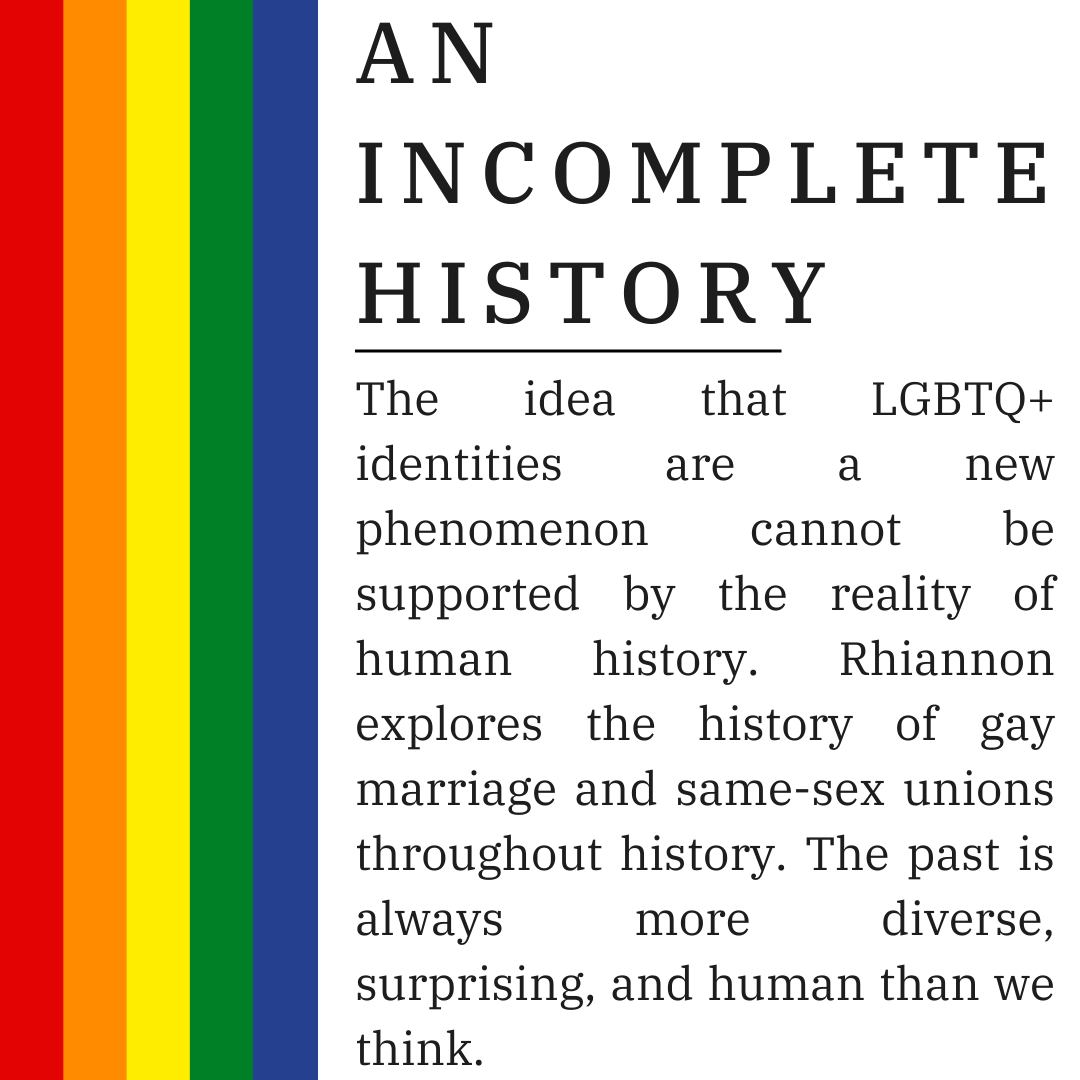Gay marriage was legalized first in the Netherlands in 2001, in Canada in 2005, in the U.S. in 2015, and most recently in Greece, Estonia, and Nepal in 2024 (Pew Research Center). However, the history of gay marriages and unions is far older than many of us realize.
To begin with, LGBTQ+ relationships existed throughout history, all over the world. For example, King James I (1603-1625), who commissioned the King James Version of the Bible, had a relationship with George Villers, the Duke of Buckingham (Dabhoiwala). However, by the Christian West’s medieval period, the general expectation was that men must have wives and children.
On the other hand, marriages between women more easily slipped under the radar. By the 18th century, when it became more socially acceptable for women to live alone, some lesbian couples managed to cohabitate together. For example, seamstress Charity Bryant and her apprentice Sylvia Drake lived together for 44 years and were buried under a joint headstone (Dabhoiwala). In another case, Mary East married a woman and lived for many years as James How (Dabhoiwala).
Skipping ahead to the 20th century, despite facing continued social and legal adversity, same-sex couples found ways to formalize their partnerships. For example, Reverend Troy D. Perry founded the Metropolitan Community Church of Los Angeles, which originally ran from his living room and had a modest twelve members (LGBTQ Religious Archives Network). The church was open to LGBTQ+ members, and performed marriage services on same sex couples, marrying two men in 1968 and two women in 1969 (Barraga). While not legally binding, these services affirmed these relationships, and the church continues LGBTQ+ advocacy today.
Similarly, Jack Baker and Michael McConnell managed to get married through a legal loophole in 1971. Baker and McConnell sued the state of Minnesota for their right to marry, but the Supreme Court refused to hear their case. Subsequently, Jack Baker changed his name to Pat Lynn McConnell, and the state issued them a marriage license. With the help of a friend registered to perform marriages, they got married 44 years before same-sex marriage was legalized in the United States (Esty-Kendall and Hewitt).
Furthermore, adult adoption has LGBTQ+ history. In the 1970s and 80s, some gay and lesbian couples would utilize adult adoption to make their partner their next of kin, ensuring that they were entitled to visit them in the hospital and that they could inherit from them. This act of resistance was complicated, the process was invasive, and courts often tried to block adoptions that they believed were between couples (Ingrao). This choice was a last resort for people who should have simply been able to marry the people they loved. However, some of these couples lived long enough to finally get legally married, vacating these adoptions.
To quote Faramerz Dabhoiwala, “The past is unalterable. But what we see in it depends on our present preoccupations.” The idea that LGBTQ+ identities are a new phenomenon cannot be supported by the reality of human history. In other words, the past is always more diverse, surprising, and human than we think.
Citations
Dabhoiwala, Faramerz. “The secret history of same-sex marriage.” The Guardian, January 23, 2015.
Ingrao, Brianne. “The History of Gay Adult Adoption.” Medium, April 27, 2017.
“Rev. Elder Troy Perry.” LGBTQ Religious Archives Network.
“Same-Sex Marriage Around the World.” Pew Research Center, June 28, 2024.
